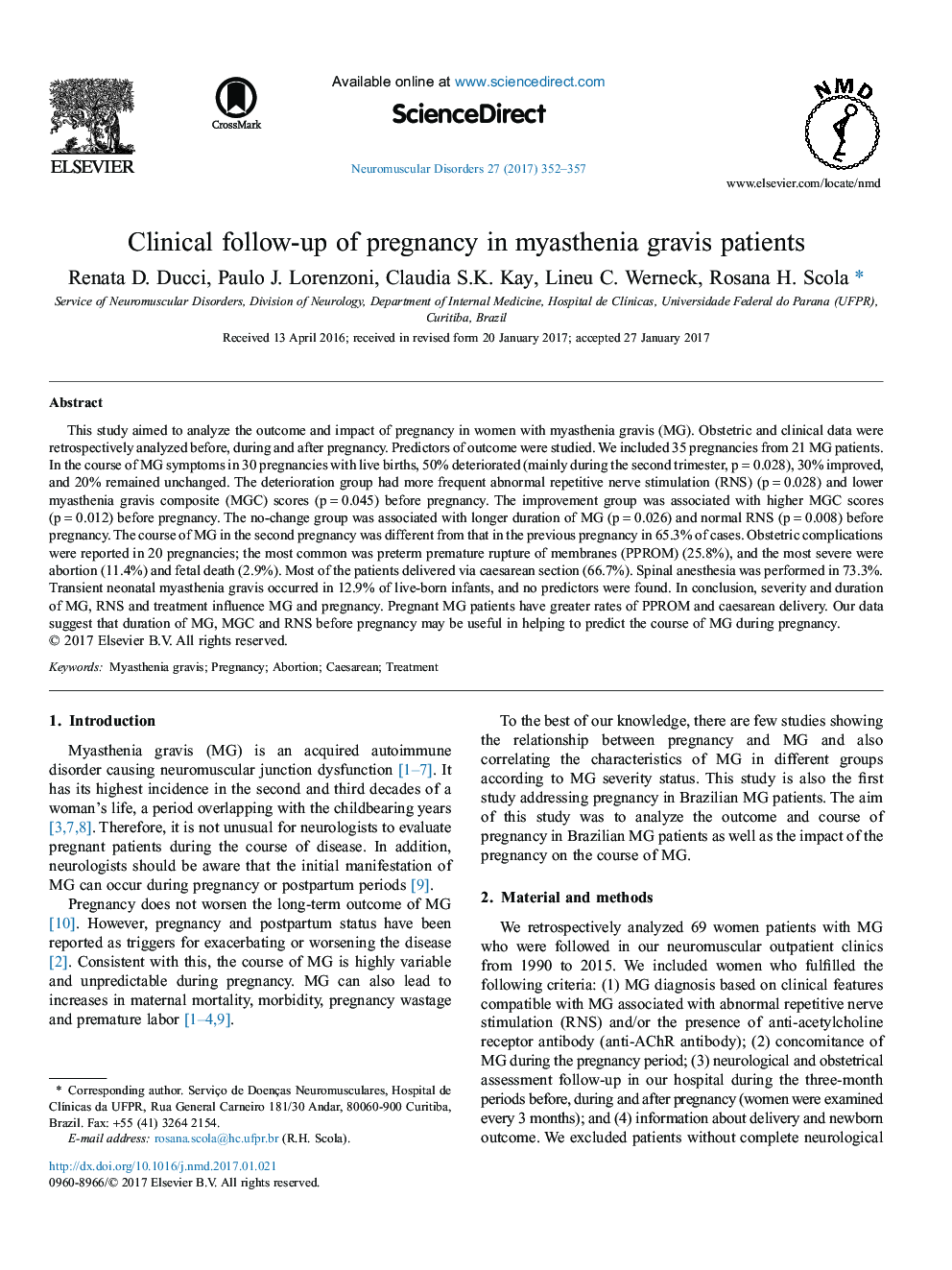| کد مقاله | کد نشریه | سال انتشار | مقاله انگلیسی | نسخه تمام متن |
|---|---|---|---|---|
| 5631993 | 1406522 | 2017 | 6 صفحه PDF | دانلود رایگان |
- MG and pregnancy were influenced by disease severity and duration, RNS and MG treatment.
- The worsening of MG symptoms occurs more in the second trimester of the pregnancy.
- Pregnant MG patients have greater rates of PPROM.
- Duration of MG, MGC and RNS before pregnancy may be useful for predicting the course of MG during pregnancy.
This study aimed to analyze the outcome and impact of pregnancy in women with myasthenia gravis (MG). Obstetric and clinical data were retrospectively analyzed before, during and after pregnancy. Predictors of outcome were studied. We included 35 pregnancies from 21 MG patients. In the course of MG symptoms in 30 pregnancies with live births, 50% deteriorated (mainly during the second trimester, pâ=â0.028), 30% improved, and 20% remained unchanged. The deterioration group had more frequent abnormal repetitive nerve stimulation (RNS) (pâ=â0.028) and lower myasthenia gravis composite (MGC) scores (pâ=â0.045) before pregnancy. The improvement group was associated with higher MGC scores (pâ=â0.012) before pregnancy. The no-change group was associated with longer duration of MG (pâ=â0.026) and normal RNS (pâ=â0.008) before pregnancy. The course of MG in the second pregnancy was different from that in the previous pregnancy in 65.3% of cases. Obstetric complications were reported in 20 pregnancies; the most common was preterm premature rupture of membranes (PPROM) (25.8%), and the most severe were abortion (11.4%) and fetal death (2.9%). Most of the patients delivered via caesarean section (66.7%). Spinal anesthesia was performed in 73.3%. Transient neonatal myasthenia gravis occurred in 12.9% of live-born infants, and no predictors were found. In conclusion, severity and duration of MG, RNS and treatment influence MG and pregnancy. Pregnant MG patients have greater rates of PPROM and caesarean delivery. Our data suggest that duration of MG, MGC and RNS before pregnancy may be useful in helping to predict the course of MG during pregnancy.
Journal: Neuromuscular Disorders - Volume 27, Issue 4, April 2017, Pages 352-357
